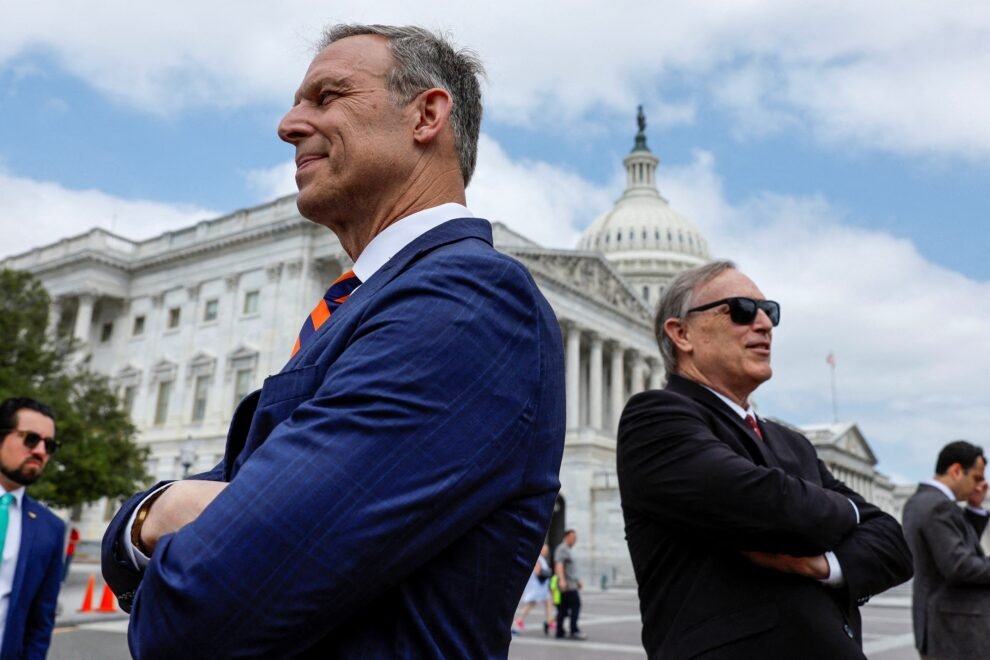A feud over spending cuts between hardline and centrist Republicans in the U.S. House of Representatives raises the risk that the federal government will suffer its fourth shutdown in a decade this fall.
Members of the hardline House Freedom Caucus are pushing to cut spending to a fiscal 2022 level of $1.47 trillion, $120 billion less than President Joe Biden and House Speaker Kevin McCarthy agreed to in their May debt ceiling compromise. The group on Monday announced its opposition to any stopgap measure to keep the government afloat that fails to meet its demands.
With Republicans also seeking higher spending on defense, veterans benefits and border security, analysts say the hardline target would mean cuts of up to 25% in areas such as agriculture, infrastructure, science, commerce, water and energy and healthcare.
Goldman Sachs analysts in a Monday research note said that a shutdown looks “more likely than not.”
Centrists, who call themselves “governing” Republicans, say their hardline colleagues are ignoring the fact that their priorities are rejected by Democrats who control the Senate and White House, and that spending will wind up near the level agreed by McCarthy and Biden anyway.
The result is a major headache for centrist Republicans from swing districts that Biden won in 2020 and others with constituents in the firing line of hardline spending targets.
“The reductions are so deep,” said Representative Don Bacon, a centrist Republican from Nebraska. “They want to make everything a root canal.”
Hardliners view the 2024 fiscal year that begins on Oct. 1 as a test of Republican resolve to reduce the federal debt and move on to reform social programs including Medicare and Social Security.
“I don’t fault any individual member for raising concerns and wanting to make sure that the bill is right for them and for their district,” said Representative Ben Cline, who belongs to the Freedom Caucus, the conservative Republican Study Committee and the bipartisan Problem Solvers Caucus.
“What there has to be is an understanding that for there to be 218 Republican votes, the spending needs to be in line with pre-COVID levels rather than the debt-limit agreement.”
One significant source of frustration is hardline demands for cuts to bills that have already been vetted by the 61-member House Appropriations Committee.
“We’re not, willy-nilly, just trying to give money away. We’re trying to focus and prioritize,” said Representative David Joyce, a member of the appropriations panel who heads the 42-member centrist Republican Governance Group.
Source : Reuters












